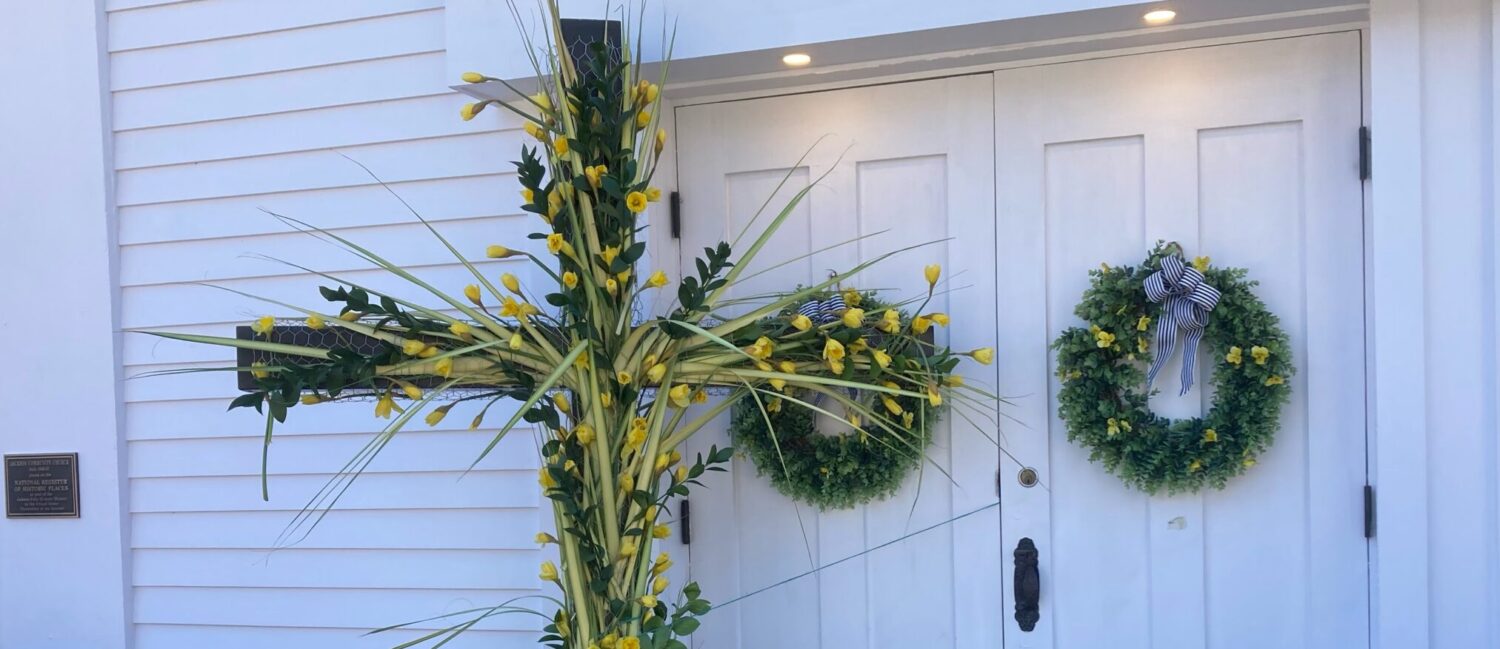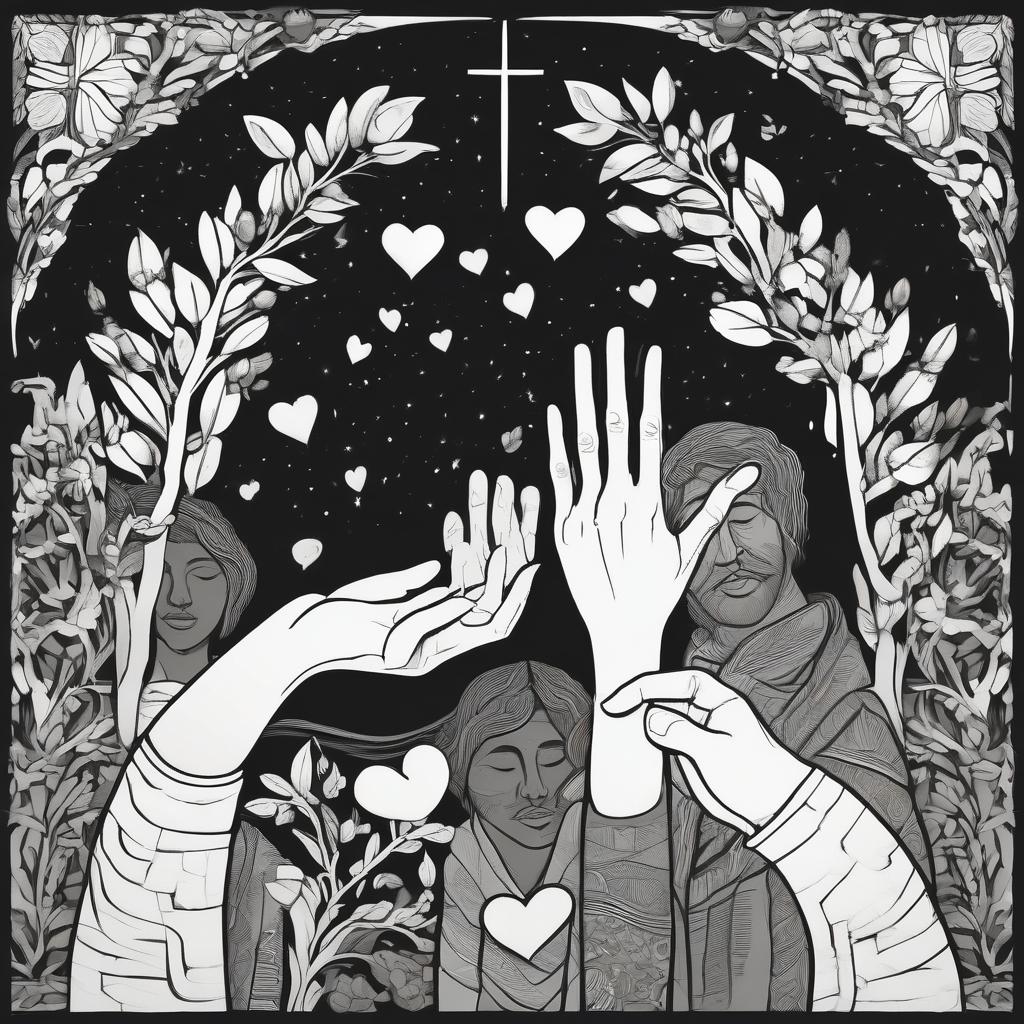Daily DevotionalCultivate different facets of love each day this month.
- Scripture: Colossians 3:13 – Bear with one another and, if anyone has a complaint against another, forgive each other; just as the Lord has forgiven you, so you also must forgive.
- Reflection: Explore the power of forgiveness as an act of love that liberates both the forgiver and the forgiven. We have discussed, in other daily reflections, the concept that forgiveness heals both the one who does the forgiving and may also affect the one who needs to be forgiven.
Sometimes we must start by forgiving ourselves. This can be the most difficult journey of all. Compassion for yourself is essential. Perhaps start this process by acknowledging what you need to forgive. Then consider if someone else, such as your child or beloved friend, had acted in the same way or caused the harm. If you were speaking to a child or friend, what would you say to them to help them be compassionate to themselves in such circumstances? How would you help them to forgive themselves, heal themselves, and free themselves of the ongoing damage that lack of forgiveness continues to inflict? Then give that same guidance or compassionate advice to yourself! You are wiser than you know.
Forgiving others is also an act of healing one’s self. Thus to forgive others also becomes an act of self-care and self-worth and self-healing. Give back the hurt and trauma and damage to the one who inflicted it, cause them to carry it, and release yourself from that burden and work, that consumes your energy, emotion, time and wellbeing. Create space for other experiences instead.
Sometimes forgiveness also heals one who needs to be forgiven. It intrinsically acknowledges, regardless of how much harm has been done by the person/agent of trespass or harm, the humanity of the person who is being forgiven. Such a person may still be held responsible and accountable, through systems of justice and/or reconciliation, for acts they have committed that caused damage to your or others. Yet the possibility of transformation, for the one who forgives, also extends to the one who is the recipient of forgiveness, if they participate in the process. - Spiritual Practice Prompt: Identify down someone you need to forgive and begin the process by praying for them.
SONG
- Back to December by Taylor Swift: https://youtu.be/qc2Z-OX9wnc?si=qLMyBTOKalTcI05V
- Forgiveness by Matthew West: https://youtu.be/oIbCpy0CQEo?si=YTc35fwLMnONNpgx
Desmond Tutu was instrumental in South Africa in both ending apartheid, and in helping the country to heal from the violence caused by apartheid laws. He founded The Truth and Reconciliation Commission, which created the safe space necessary for victims of apartheid violence to talk with their abusers in order to create healing, and to release pain and resentment.
Tutu lays out four steps to forgiveness:
- Telling the story. “Telling the story is how we get our dignity back after we have been harmed. It is how we begin to take back what was taken from us, and how we begin to understand and make meaning out of our hurting” (Tutu, p. 71). Often, after abuse, people hide the stories of their hurt. But silence and secrets are the breeding ground of shame, and by exposing the stories to the light, we can dispel the shame of the secrets. It is important to choose carefully to whom we tell our stories. If it is possible to tell the perpetrator of the hurt in a safe way, that might be preferable. However, if the perpetrator is not available, or not open to the story, a therapist or a trusted friend/advisor might be a good choice.
- Naming the hurt. “Giving the emotion a name is the way we come to understand how what happened affected us. . . We are each hurt in our own unique ways, and when we give voice to this pain, we begin to heal it” (Tutu, p. 95). Sometimes the very act of naming the emotion can take some of the power out of it. By saying, “Oh, I’m feeling hurt, or anxious, or sad,” we give our attention and caring to the emotion, which is the first step in allowing it to heal. Emotions that we ignore tend to grow, and come out in ways that can be surprising.
- Granting forgiveness. “We choose forgiveness because it is how we find freedom and keep from remaining trapped in an endless loop of telling our stories and naming our hurts. It is how we move from victim to hero. A victim is in a position of weakness and subject to the whims of others. Heroes are people who determine their own fate and their own future” (Tutu, p. 121). Whether or not the perpetrator of your hurt knows that you have forgiven is not important. You know. You know that you have set down the load of your anger, hurt and betrayal. What a relief! This can be a slow process. Sometimes it takes several attempts over time to release the fulness of the pain. Be patient with yourself, and don’t expect the process to be completed overnight.
- Renewing or Releasing the Relationship. “A preference is always toward renewal or reconciliation, except in cases where safety is an issue. When we choose to release a relationship, that person walks off with a piece of our hearts and a piece of our history. The choice is not one to be made lightly or in the heat of the moment” (Tutu, p. 148). Deciding whether or not to continue the relationship is difficult and personal. If the relationship is one where the benefits outweigh the costs, then renewal can be a good plan as long as both parties agree. However, if having a relationship with the person who hurt you is unsafe, too painful, or puts other people in your life in danger, it is likely that releasing the relationship is the best choice. Take your time with this decision, and make sure that your heart feels comfortable with the choice that you make.
While this process may seem daunting in the face of overwhelming pain, it is truly the best path towards healing yourself of the pain and resentment you may be carrying due to the hurtful actions of others. If it is possible for victims of apartheid violence and oppression to meet with their perpetrators, tell their stories, name their hurts, grant forgiveness, and make a choice about whether to renew or release the relationship, I believe that it is possible in almost any situation.
Full article: https://jenniferjames-author.medium.com/the-fourfold-path-to-forgiveness-a-way-to-release-hurt-and-resentment-41c290af819b

